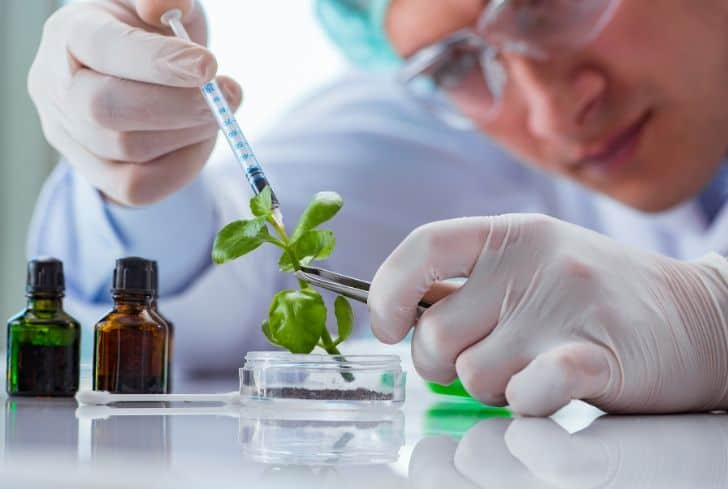What is Bio Technology ?
What is Bio Technology?
Bio technology, or biotechnology, is the application of biological sciences to technological tasks. It can be broadly defined as the use of living organisms or their components for the production of new products and technologies. Bio technology has been used in a variety of fields including agriculture, food processing, pharmaceuticals, textiles, energy production, and environmental cleanup. Bio-technology is also being used to create new varieties of crops and livestock, and to develop new drugs and vaccines.
There are a number of benefits to using bio-technology in wine production. For example, many wine grape varieties are hard to grow in colder climates, but bio-technology can help growers increase grape yields in these areas. Bio-technology can also help improve wine quality by identifying and eliminating undesirable compounds. Bio-technology is an important part of modern wine production and will continue to play a significant role in the future of wine.

History of Bio Technology
The history of bio-technology can be traced back to over 4500 BC when early humans began making wine from grapes. Over the years, wine production has evolved significantly, but the basic principles remain the same. Today, wine is still produced by fermenting fresh grapes into wine. However, today's bio-technologies are used to modify and improve wine production in a variety of ways.
One of the earliest forms of bio-technology was fermentation.The process of converting sugar into alcohol and carbon dioxide is called formentation. Fermentation occurs naturally in many fruits and vegetables, but it can also be induced by exposing grape juice or other fruit or vegetable matter to an environment that contains wild yeast or bacteria. The use of modern fermentation technology has greatly improved wine quality and yields.
Today's bio-technologies are used to modify and improve wine production in a variety of ways. One example is bioprocessing. Bioprocessing is the use of biological processes to change or manipulate materials for industrial or commercial purposes. Bioprocessing technologies can be used to extract valuable substances from raw materials, create new products from waste materials, or clean up contaminated environments.
What Does Bio Technology Mean for Wine?
Bio technology is the future of wine! It’s a term that is being thrown around a lot these days, but what does it mean? Simply put, bio-technology is the use of natural or man-made processes to improve or manipulate wine. In other words, it’s all about tinkering with the wine production process in order to get the most out of it!
One popular example of bio technology is Genetic Altering. This involves altering the DNA of grapes in order to create unique wines with specific flavors and aromas. Other methods used include Enzymatic Processing and Temperature Control. And don’t forget about Vineyard Irrigation! All of these techniques play a role in making wine better, more consistent and easier to produce.
So what's this mean for wine lovers? Well, it means that there are endless possibilities for creating wines that are truly unique and special. Plus, thanks to advances in bio technology, wines can be made more cheaply than ever before – meaning that more people can enjoy them! So if you’re looking for something new and exciting to try in your wine collection, give bio technology a go!
How does Bio Technology Impact Your Wine Consumption?
Bio-Technology has the ability to improve the quality and sustainability of wine, making it healthier and more environmentally friendly. In recent years, scientists have been able to improve wine making by improving grape yields and wine production through the use of biotechnology. Improvements in winemaking technology allow for better quality wines that are also more environmentally friendly.
One of the ways bio-technology has helped to improve wine is by increasing grape yields. By using genetic engineering, scientists have been able to increase grape yields by as much as 30%. This has allowed for a larger supply of high quality wine grapes, which in turn has led to a decrease in the price of wine. Additionally, biotechnology has allowed for the production of biofuel from wine grapes. This biofuel can be used to power vehicles, which makes wine production more environmentally friendly.
Another way that bio-technology improves wine is by improving quality. By using biotechnology, scientists are able to produce wines with a higher quality and consistency. In addition, biotechnology allows for wines that are more environmentally friendly because they are lower in emissions. For example, Wine 2.0 uses carbon dioxide capture technology to reduce emissions by up to 90%.
Overall, bio-technology has given us better wine with a higher quality and consistency. However, as we have seen, it has also given us some negative effects that must be addressed. In order to really understand how this technology affects the wine industry, it is important for us to learn about the science behind each kind of bio-technology.
Conclusion
Bio-technology is revolutionizing the wine industry, and there are many exciting possibilities for the future. One of the most promising areas of research is in bioprocessing, which allows grapes to be treated with enzymes and other biological agents to change their flavor, color, and composition. As wine becomes more complex and interesting, it will be fascinating to see how this technology develops over time.
 English
English
 Bahasa Indonesia
Bahasa Indonesia
 Português
Português




